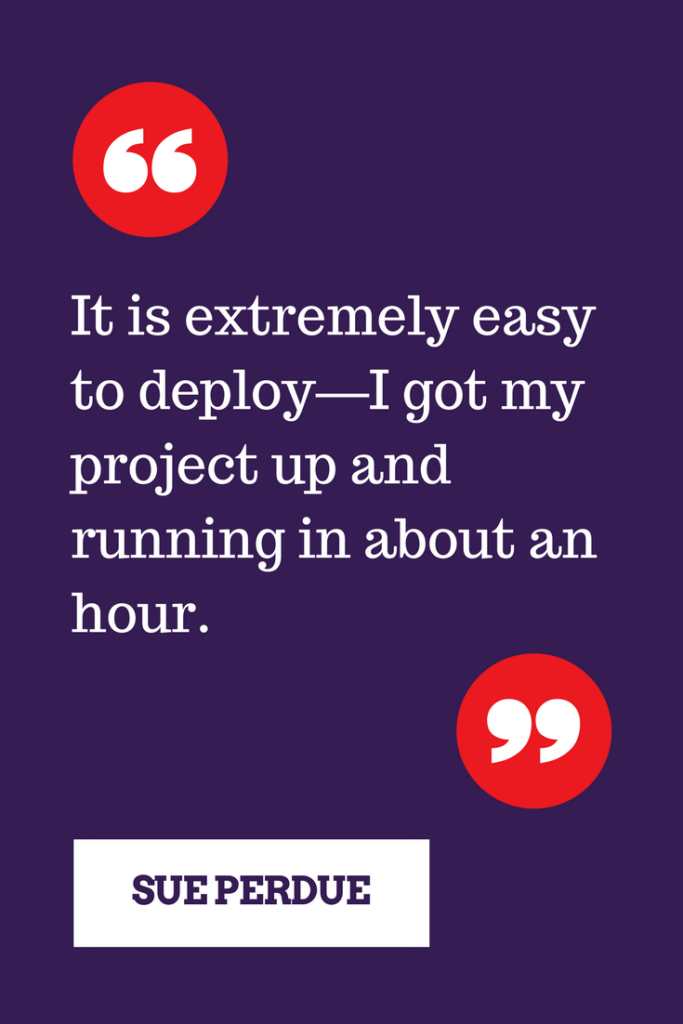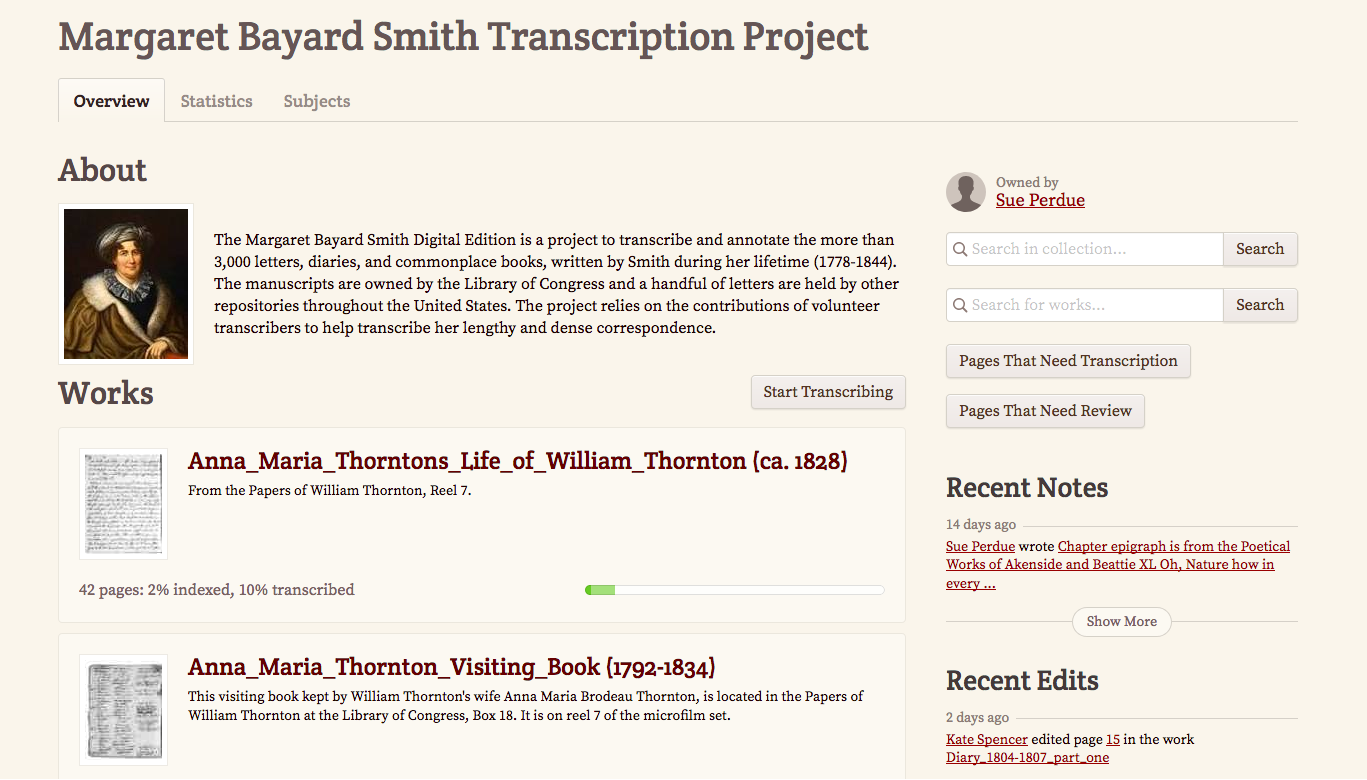
Sue Perdue is is a past president of the Association of Documentary Editing, the co-editor of A Guide to Documentary Editing, and has worked on the Papers of Thomas Jefferson, the Papers of John Marshall, and the Papers of James Madison.
First, tell us about your documents.
The Margaret Bayard Smith Transcription Project is part of a larger documentary editing project that I have been working on since 2000. Yes, that's right—18 years at it. The aim of the project is to transcribe and edit the correspondence of Margaret Bayard Smith, the manuscripts of which are at the Library of Congress. They were digitized from microfilm just last year. Smith (1778-1844) was a prolific letter writer as well as writer of essays, novels, and commonplace books. She lived in Washington City at a fascinating time, and she writes extensively about her acquaintances including Thomas Jefferson, James and Dolley Madison, Anna Maria and William Thornton, among others. These people were central to the formation of Washington as the new political capitol in the early 19th century.
There are about 3,000 documents in the collection, and most of them have never been transcribed. That said, I have enlisted interns, friends, and my family members to do transcription in this material. There is a published edition of about 150 of these letters but it is only the tip of the iceberg. I hope to get funding to add the annotation for these documents down the road, but for now, I'm thrilled to have a platform like FromThePage to solicit contributions from folks interested in the Early Republic.
What are your goals for the project?
I am hoping to get baseline transcriptions of the entire collection. I wouldn't consider these transcriptions authoritative, but the platform helps me move all of this material to greater accessibility and intellectual control.

How are you recruiting or finding volunteers/collaborators?
It just so happens that a friend of mine, Elizabeth Dowling Taylor, is writing a biography of Smith. She and I are working together to get this material more widely known and it was through her contacts at Monticello where she used to work, that brought in a large group of potential volunteers. I also sent out a notice to some of my acquaintances who are retired documentary editors. I have only used social media in a tiny way to get the word out. I hope to get more material on the site before I make a bigger push to let folks know about the project.
Can you share your experience using FromThePage?
I have limited experience using crowd-sourcing transcription tools, but I have years of experience transcribing. This has traditionally be done using a copy stand alongside a computer which presents challenges in trying to keep one's place. I have found FromThePage exceptionally good at facilitating transcription. The interface is flexible. The images are easy to manipulate, the transcription pane is very easy to use. I love that I can export TEI XML from the platform. I especially love the ability to mark up names and places. It is extremely easy to deploy—I got my project up and running in about an hour.
How does FromThePage and crowd-sourcing fit with more traditional documentary editing?
This is a changing landscape. Traditional documentary editing projects have shuddered at the notion of crowd-sourcing transcription. It is not just the perceived threat to job security, but a sense that the process challenges the editorial expertise. I think that is overblown. There is so much material out there that needs transcription and many projects with limited budgets can benefit from this approach. Many projects tend to rely on graduate students to do this kind of work, but I have found they are inconsistent and not entirely reliable for getting large amounts of material transcribed. I am hoping that a small group of devoted transcribers will make this happen. As I see it, crowd-sourcing can serve as the first pass of a project. It creates raw-ish content for the documentary editors and it creates a user community.
Anything else you'd like to tell us?
I also like the fact that my project shares space with other projects. I think this makes for a nice community of historical materials.
I am planning on sponsoring a transcribing hack-a-thon to generate some interest and community of folks. I would be interested to know if other projects have done this.

